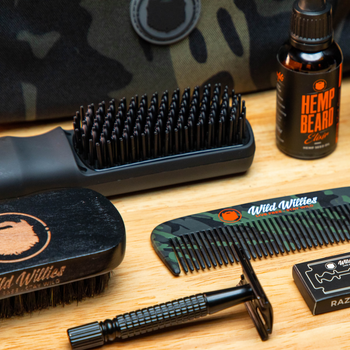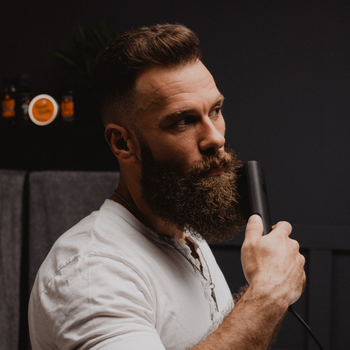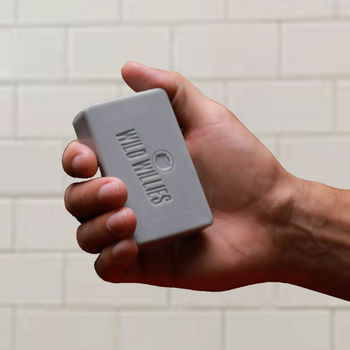When shopping for UV-protection, many people wonder: What are the best ingredients for sunscreen?
But one look at the ingredients list, and you might start to ask yourself some serious questions about whether chemicals you can’t pronounce are good for the skin.
You probably also want to know what makes a good sunscreen and how to know which one to buy.
When it comes to making the right choice, the first step is to not get sucked into marketing gimmicks.
The list below will help you to make a more objective decision…
1. Water Resistance
One marketing gimmick you should avoid is “waterproof.”
The FDA warns that no such thing exists. It states that all sunscreen eventually rinses from the skin.
Because of this, it’s important to read the fine print. It should tell you whether the sunscreen remains active after 40 or 80 minutes of swimming, splashing or sweating.
That brings us to the second point: Don’t assume water-resistant sunscreen is only for the pool or beach.
When you sweat, you start to lose that sunscreen protection.
Ensure you find a sunscreen product that can hold up against this when engaging in sweaty outdoor activities, such as mowing the lawn or going for your morning run.
2. Broad-Spectrum UV Protection
WebMD notes that in the past, companies focused primarily on blocking UVB rays because they caused sunburns.
But scientists then discovered that UVA rays can also cause damage to the skin, including speeding up the aging process and increasing the risk of cancer.

If you’ve ever wondered “what is the most important ingredient in sunscreen,” these ingredients can offer great UV protection:
- Octylmethyl cinnamate and cinoxate
- Titanium dioxide or zinc oxide
- Sulisobenzone
- Avobenzone
- Salicylates
- Ecamsule
3. SPF Factor
SPF offers protection mainly against UVB rays, but it was once the gold standard of a good sunscreen.
Even though manufacturers now recognize that UVA protection is of equal importance, you should still pay attention to SPF. This is especially important if you burn easily.
For most people, SPF 15 works just fine, but at Wild Willies, we’ve always recommended SPF 30. People who burn more easily should consider SPF 30 instead.

Note that this does not double the protection. There is roughly a 5% increase in protection, but for some people, it makes all the difference.
People who meet the following criteria should also opt in for SPF 30:
- Family history of skin cancer or lupus
- Sensitivity to light
- Very fair complexion
4. Geographic Source
If you bought your sunscreen while overseas, you likely want to avoid using it when you return to the United States.
Those sunscreens might work just as well as the ones sold in the U.S., but they may face fewer restrictions in production or labeling.
The FDA states that sunscreen is treated as a drug in America and regulated as one from a marketing perspective, but this isn’t always the case abroad.
In other words, American companies must create products that live up to the claims they make.
In many overseas locations, sunscreen is treated as a cosmetic product and might not need to meet these stricter guidelines. Because of this, companies selling them can make outlandish claims with no need to back them up.
It might not always be true everywhere overseas, but just remember to always do your research so you can make sure you know what you’re getting no matter what.
5. Types Of Applications
Not all types of sunscreen products are suitable for all situations.

For instance, imagine a groom pulling out spray-on sunscreen to protect his wife-to-be at their beach wedding…
Her white dress would likely be ruined by the coloring in the product and the lack of control a spray offers.
Here are some of the many other types of applications to keep in mind:
- Lotions and creams
- Butters and oils
- Pastes
- Sticks
- Gels
Pick the one that best suits your situation.
6. Special Considerations
If you have sensitive skin, a specific allergy or a skin condition, talk to your dermatologist or family physician before choosing a sunscreen brand or type. Ask for a recommendation.
Consider how a sunscreen reacts with other products you use on your skin too. The mix might create irritation or one could reduce the effect of the other.
If you need to make a quick decision and can’t receive immediate medical advice, then WebMD recommends using sunscreen products made for children.
Steer clear of sunscreens that contain perfumes, alcohol or preservatives. Products with titanium dioxide or zinc oxide might suit you best.
7. Additional Perks
Protection from UV rays is not the only benefit sunscreen provides.
For instance, many people use it to help develop that bronzed body or golden summer glow. This is especially common among people who enjoy tanning at the beach.
Moisturizing is another great extra perk to look for, which is why customers love our Wild Willies Smooth with SPF 30.
This is even more important if your plans include spending time in chlorinated or salty water. Both of these can dry out the skin.
If you choose a sunscreen with moisturizer, be sure to check for antioxidants as well.
Defend Your Skin With Wild Willies
While soaking up some vitamin D is important, it’s equally important to use products to protect your skin, especially in the spring and summer.
Want products made just for men? Check out our Wild Willies collection today.







